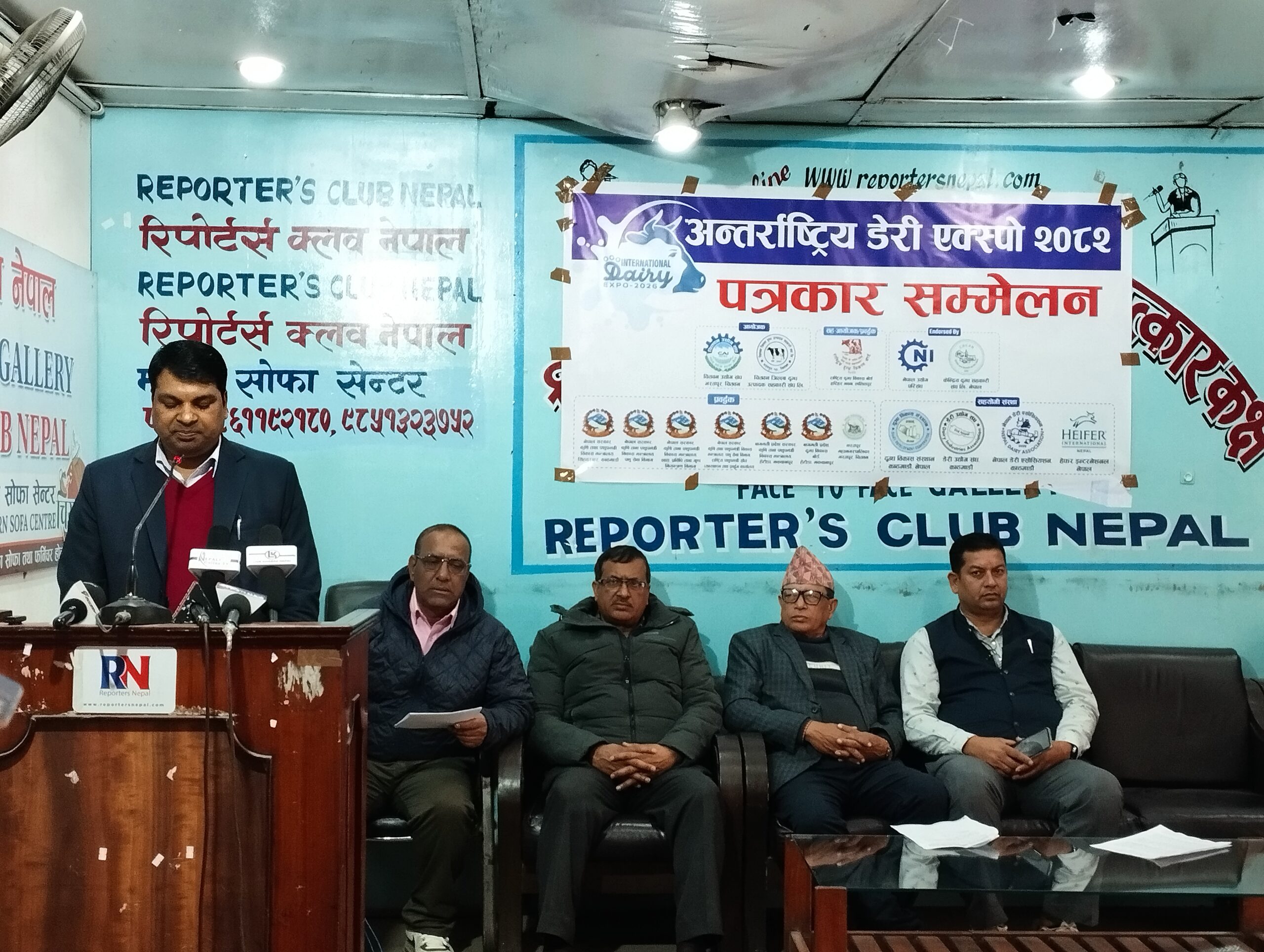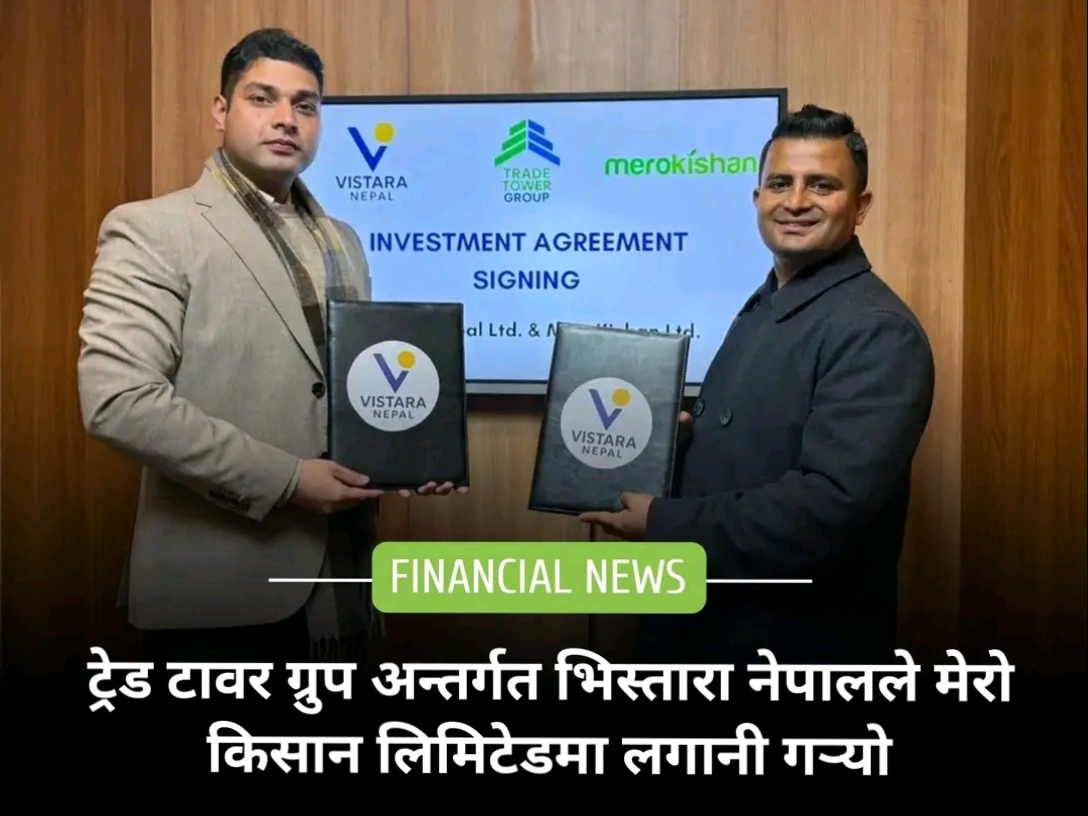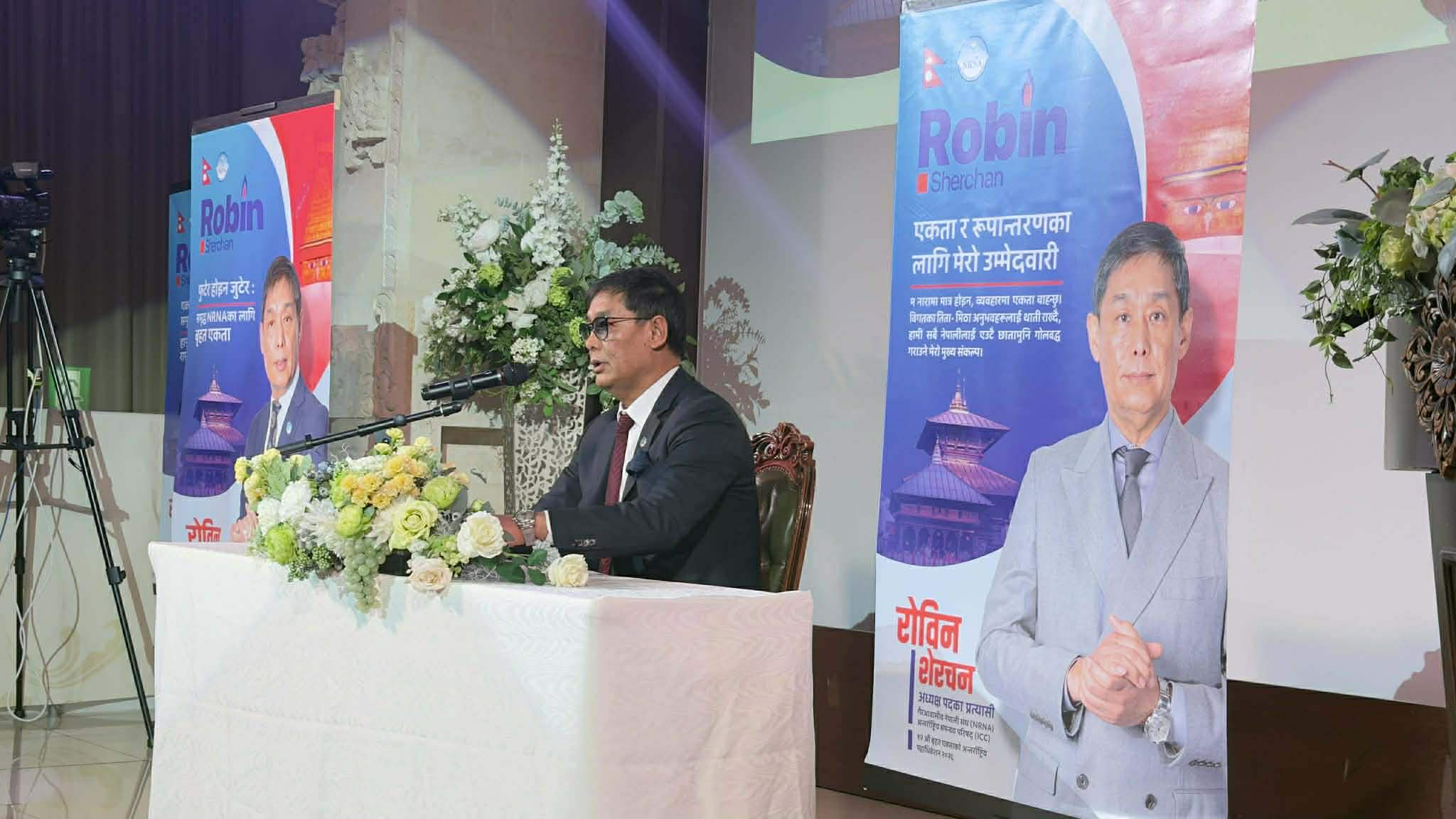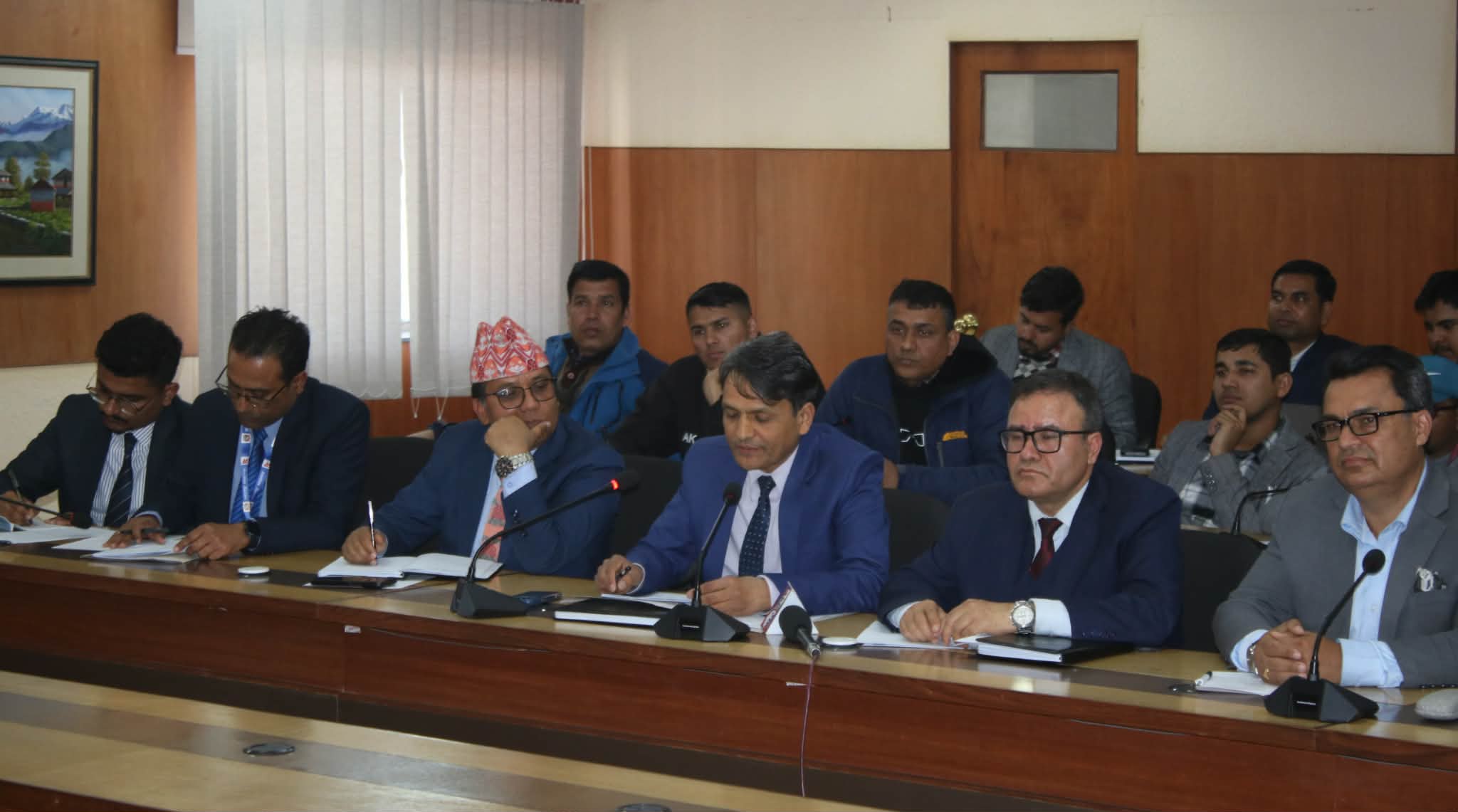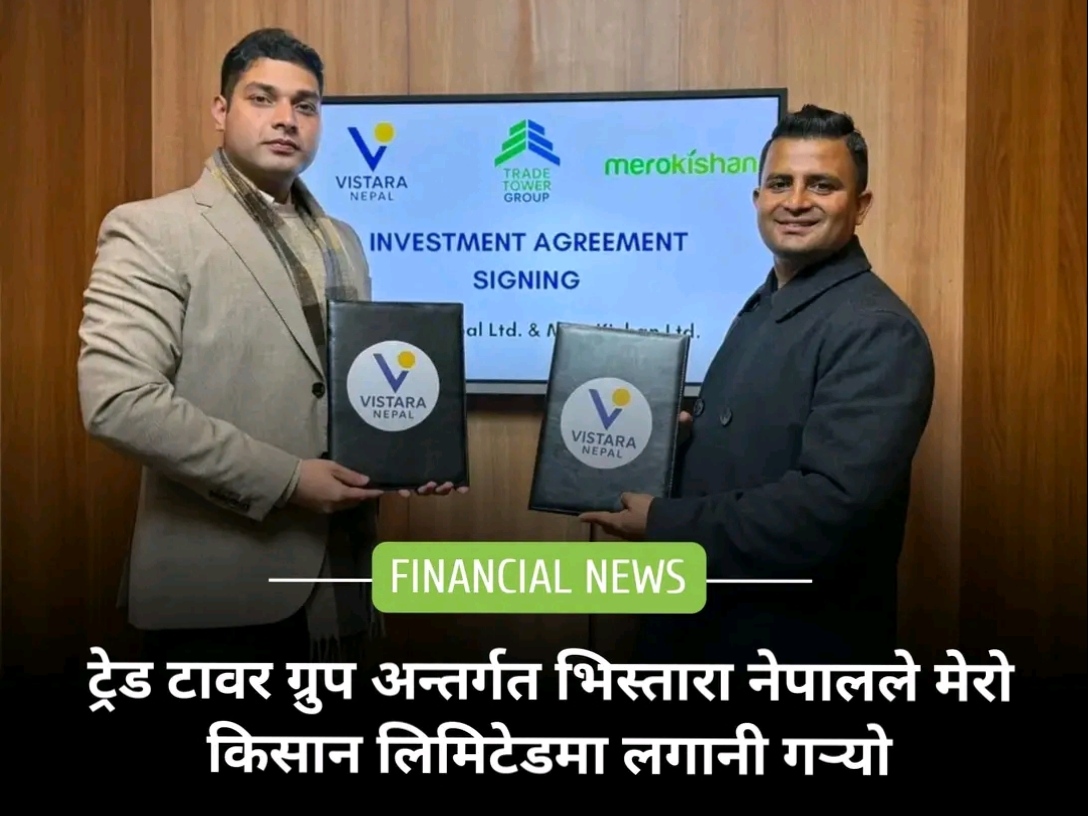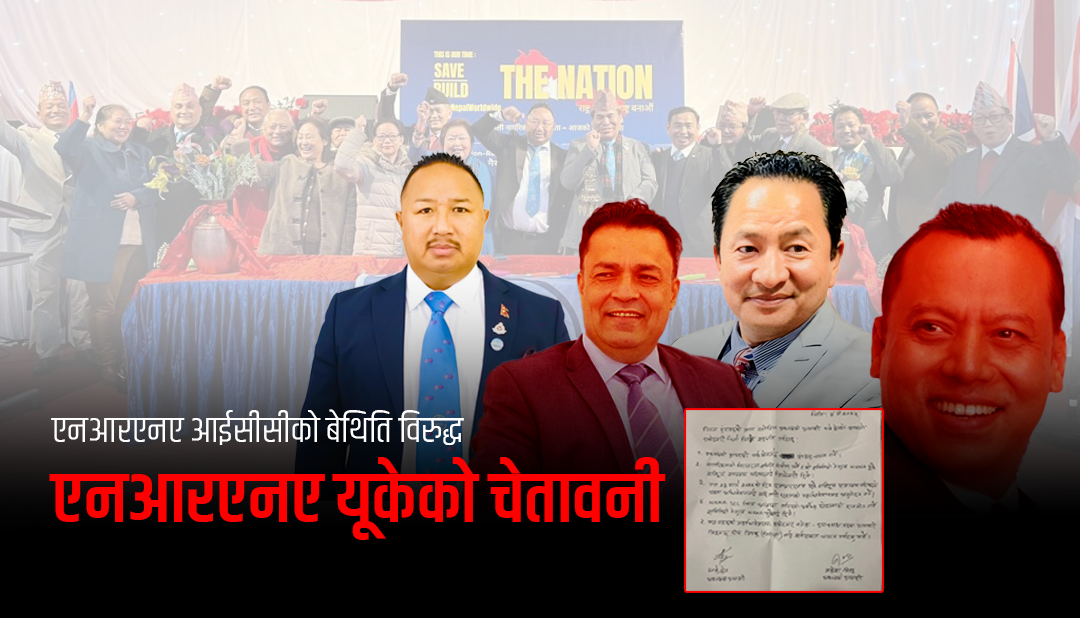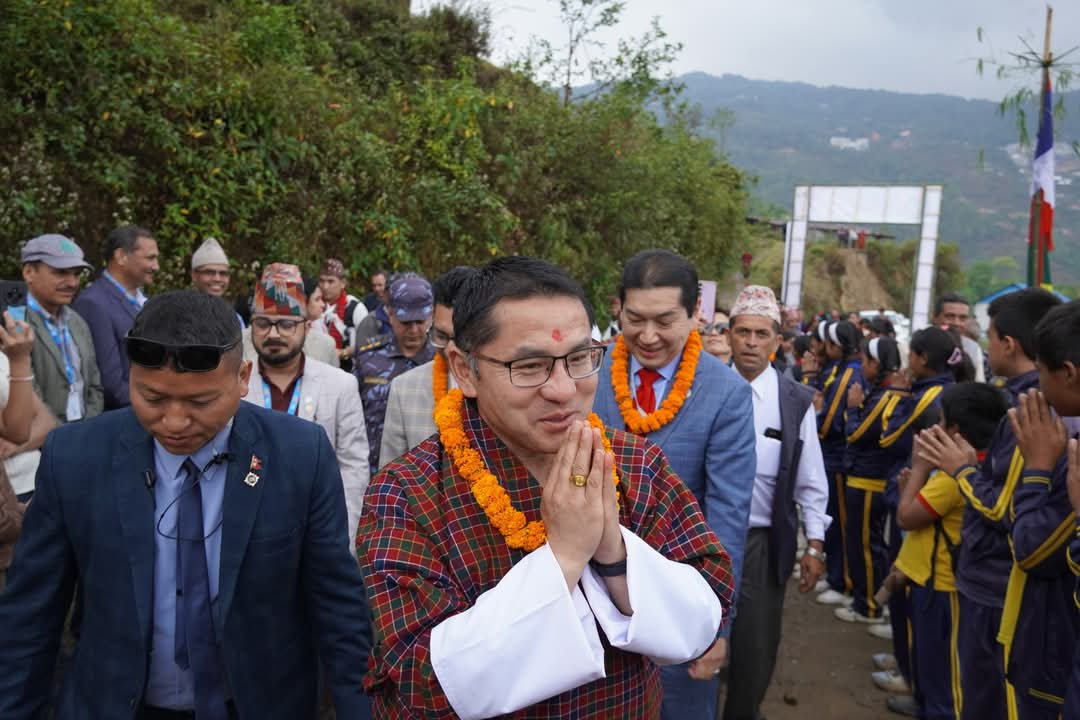
A high-level delegation from the Royal Government of Bhutan, headed by Hon’ble Lyonpo Younten Phuntsho, Minister of Agriculture and Livestock, atttended on a significant learning and cultural exchange mission to Nepal’s pioneering “4 Betters” model village located in Mandandeupur Municipality, Kavre The visit was facilitated in close partnership with the Food and Agriculture Organization of the United Nations (FAO), and led by Mr. Ken Shimizu, FAO Representative for Nepal and Bhutan.
The Bhutanese delegation comprised senior officials and technical experts from the Ministry of Agriculture and Livestock, underscoring the Royal Government of Bhutan’s commitment to inclusive and sustainable agricultural transformation.
Upon arrival, the delegation was warmly received by the Mayor, Deputy Mayor, ward representatives, and members of the Gurung community. The vibrant welcome reflected the strong spirit of local pride and hospitality, as well as the cultural richness of the host community.
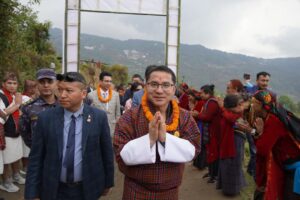
During the visit, the delegation engaged in an immersive field experience exploring the core elements of the “4 Betters” approach-Better Production, Better Nutrition, a Better Environment, and a Better Life-an integrated framework championed by FAO to promote sustainable, inclusive, and resilient agri-food systems. The model village, established through collaborative efforts between FAO, the Government of Nepal, and local partners, serves as a living example of community-driven development in action.
Delegates witnessed a range of transformative practices including climate-smart agriculture, agroecological farming, integrated livestock systems, and nutrition-sensitive interventions. They interacted with farmers and community leaders, gaining firsthand insights into the innovations, challenges, and impacts experienced at the grassroots level.
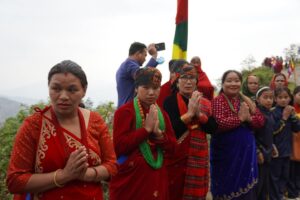
The visit also included a cultural exchange component, with the delegation touring the Gurung Community Museum-a center preserving and celebrating the unique traditions, artifacts, and social heritage of the Gurung people. The experience was further enriched by cultural performances and traditional hospitality, fostering deeper appreciation for Nepal’s diverse social fabric.
Hon’ble Lyonpo Younten Phuntsho praised the impressive achievements of the community and emphasized the value of peer learning and regional collaboration. He acknowledged the importance of such models in building resilient food systems that are adaptive to changing climatic and socio-economic conditions.
Speaking at the event, Mr. Ken Shimizu, FAO Representative for Nepal and Bhutan, highlighted that the 4 Betters model village in Mandandeupur is a powerful example of how community-based, inclusive approaches can transform rural lives and livelihoods. It reflects the spirit of collaboration between FAO, the Government of Nepal, and the people at the heart of these changes. We are honored to share this success story with our Bhutanese counterparts, and we hope it inspires similar community-driven models across the region.
This exchange program support in a close learning and contribution between Nepal and Bhutan, with the potential to inform future policy frameworks, rural development strategies, and cross-border knowledge sharing. It also reaffirms the collective commitment of both nations, together with FAO, to achieving sustainable agriculture, food security, and rural prosperity in the Himalayas and beyond.
#4Betters
#communityfirst
#AgriFoodSystems



